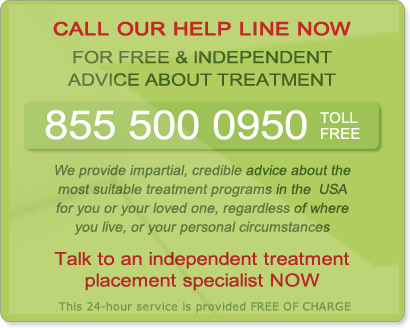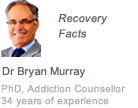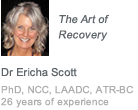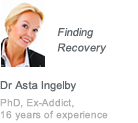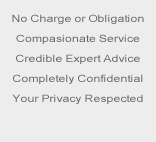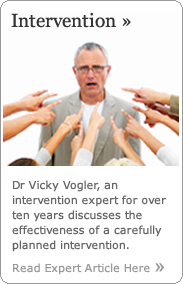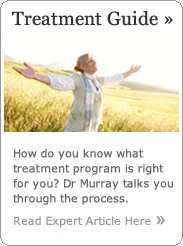Drug and Alcohol Addiction Treatment Guide
Drug and Alcohol Addiction Treatment Guide
A comprehensive drug and alcohol addiction treatment guide is practically impossible to produce, as no two instances of addiction have the same effect on an individual, their family or their work and social environment. We aim with this guide to provide some basic information which will lead the individual or their families to understand what causes drug and alcohol addiction and how it can be treated.
If you have any questions or require specific information once you have read our drug and alcohol addiction guide, you should call our free treatment advice line and speak directly with an independent and experienced professional who will be able to provide confidential help in respect of your own personal issues and circumstances. Please remember that help is only a phone call away.
What is Addiction?
There is a lot of uncertainty over how “addiction” should be defined. Primarily it is an abnormally strong desire for a psycho-active substance which, when taken excessively on a regular basis, develops into a loss of control over the consumption of the psycho-active substance. The compelling desire for the substance – be it drugs or alcohol – develops over time until it changes an addicts behavior as it becomes their primary motivation.
Alternate terms which are often used when referring to addiction such as “dependency” and “abuse” do not help to create an exact definition of the word “addiction”, because although both drug dependency and alcohol abuse are both possible flags to a habit, neither is necessarily proof of an addiction.
The repeated consumption of a psycho-active substance can be temporary or permanent, legal or illegal, harmful to others or just the victim themselves – what is most important is that if the signs of addiction are recognized at an early stage, treatment is available before a desire develops into the primary motivation and before the psychological damage manifests into physical harm.
Signs of Addiction
One of the major problems with identifying addition at an early stage is that the desire for a psycho-active substance sneaks up on the victim over a period of time. A joint with friends at the weekend or a quick drink on the way home at the end of the working week can develop into a daily habit without the transition being noticed.
As an addiction takes hold, a victim may start to neglect social or family obligations or their job performance may begin to deteriorate as their ability to control the use of the addictive substance is compromised. What began as a voluntary choice – indeed a pleasure – has developed into a physical and psychological need.
How to Help an Addict
Drug dependency and alcohol addiction are illnesses, and like many other illnesses you have to acknowledge that there is a problem before you approach a trained professional for help. In most cases – with an ordinary illness – a doctor will prescribe a course of treatment to cure you or a loved one of the ailment and prevent a re-occurrence.
Unfortunately for many addicts, the “symptoms” of drug dependency and alcohol addiction are enjoyable throughout the early stages of the illness; and it is only once the illness has reached critical level that victims – or those close to them – realize they need help from a trained professional to guide them back towards a healthy existence.
By this time, treatment for addiction is more complex than that of a physical ailment. Addiction treatment has to resolve not only the physical issues, but the psychological and emotional triggers which cause an addict to turn to drugs and alcohol. By simply taking anti-depressants or drugs to reduce cravings does not address the core issues and addicts may often develop further dependencies.
If you are reading this guide to drug and alcohol addiction treatment because of fears concerning a loved one, how you can help an addict is by talking with them about your fears and, without being judgmental, offer them your help and support. If you are reading this guide for your own benefit, the sooner you take action, the quicker and easier your problems will be solved.
Whether you are the friend of an addict or somebody suffering from an illness, our 24-hour toll-free help line can provide impartial advice about addiction treatment programs in complete confidence and without any obligation or commitment from you. Help is only a phone call away.
Types of Addiction Treatment Available
Although pills exist to tackle the symptoms of drug and alcohol addition, the pills themselves do not attack the core of the illness – what drives a person to take drugs and/or drink excessively? To resolve these issues, far more thorough treatment is required and there are several types of addiction treatment available.
Addiction Treatment from a Doctor
Addiction treatment from a local MD is only recommended when an individual has acknowledged that they have a drugs or alcohol-related illness before the condition becomes critical; and only then when the treatments prescribed by a doctor are complimented by counseling or a 12-step support group to help address the psychological and emotional causes of an addiction.
Addiction Treatment in the Community
Addiction treatment in the community is often referred to as “out-patients rehabilitation” and consists of regular non-residential rehab sessions with a flexible program of recovery to manage the medical, emotional, behavioral and educational needs of the recovering addict. However, part-time treatment is no substitute for a focused period of addiction treatment in a residential facility.
Residential Addiction Treatment
Residential addiction treatment is a commitment to oneself to get well. Rehabilitation provides psychological and medical treatment to address the issues which cause an individual to become addicted and enables addicts to remove themselves from familiar workplace and social environments and the temptation to relapse when treatment becomes difficult.
With professional care it is possible to break the psychological chain which causes a person to react to a certain situation by relying on what they are most familiar with – taking drugs or drinking alcohol – and, as most residential addiction treatment facilities provide aftercare, to sustain abstinence and avoid relapse when they return to the community.
Inasmuch as choosing between addiction treatment from a doctor, in the community or in a completely detached environment depends largely on the nature and severity of an illness, most addicts who have experienced a full-time rehabilitation facility would recommend residential addiction treatment.
Obviously cost is a factor when looking at addiction treatment options, but our independent treatment placement specialists can advise on a range of opportunities from low cost centers to executive addiction treatment facilities. It may also be possible to take advantage of insurance cover to find the best treatment within a certain budget, so speak with an independent expert on our 24 hour toll free helpline – help is only a phone call away.
What Does Addiction Treatment Consist Of?
No two addiction issues are the same, and therefore many different addiction treatments exist. After a medical and psychological consultation, a healthcare specialist will compile a bespoke course of addiction treatment which is designed to meet the patient´s specific requirements and which could consist of any of the following.
- Supervised Detox to help manage the acute physical withdrawal symptoms that can arise from coming off drugs or alcohol.
- Medical Services to provide maintenance medication or anti-craving pills to tackle the symptoms of drug and alcohol addition
- Psychotherapy and Psychiatric Services to help overcome the background triggers which are responsible for creating and maintaining the addiction
- Pharmacotherapy to combine the benefits of medical and psychiatric services and remove the temptation to relapse into addiction
- Nutrition and Diet Programs to accelerate the detox process and change perspectives on drugs and alcohol
- Alternative Therapies such as yoga, meditation and Tai-Chi help to reduce stress and to connect mind and body
- Therapeutic and Recreational Activities will help to take the mind off of cravings and enable association with others in an addiction-free zone
- Family Therapy Services because nobody is expected to undergo addiction treatment without the love and support of those closest to them
- Aftercare which often consists of outpatient counseling to offer support when the patient returns to their familiar environments.
Although some elements of addiction treatment may not look that appealing, ask yourself would you participate in them if they restored you to full health? If you had a life-threatening illness such as cancer, you would not hesitate to do whatever would help you make a full recovery.
Drug and Alcohol Addiction Interventions
As the voluntary choice of drugs or alcohol develops into an addiction, the addict is unlikely to realize what harm he or she is causing to themselves – or friends, family and work colleagues. Addicts believe that their actions are acceptable, as they receive approval from those most likely to engaging in the same addiction, and it is not until they are confronted with their addiction outside of their regular environment that the true impact of their addiction is realized.
These confrontations – or interventions as they are most frequently known – enable members of the family and others from the community or workplace to sit down with the addict and tell him or her that their actions are not acceptable. Telling an addict that their habit has got out of control and that they need professional help can be exceptionally difficult when the addict is somebody you love or respect; but it is in the best interests of the addict to take positive action by intervention, rather than harming them further by remaining silent.
An intervention should be planned with the assistance of intervention specialists due to the emotional trauma that everybody in attendance is likely to experience. Furthermore, you will not know for sure at the beginning of an intervention whether your loved one will be resistant to the goals of your intervention or whether they will agree to your appeals that they enter rehabilitation willingly.
It is not true that you cannot force a friend or loved one into addiction treatment, or that it has to be something which is mutually agreed upon. Frequently, people suffering from drug and alcohol addiction who are involuntarily pressured into rehabilitation benefit just as much as those who go of their own free will. As the person you care about sobers up, their thinking clears and they can make the decision that they want to change.
Recovery from Drugs and Alcohol Addiction
Staying clean and free from addiction to drugs and alcohol poses many challenges to the addict and their family. Recovery from drug addiction is a long process that often involves setbacks, but relapses do not mean that the treatment has failed or the support has been inadequate – just that the previously addicted person has tripped over and needs to be picked up and helped back on their way.
An addicted individual can successfully stay sober by developing positive habits in a similar way to the negative habits which were responsible for the drug or alcohol addiction in the first place. With the love of family and friends, and help from support groups and professional counseling services, an addiction to drugs and alcohol can be overcome and the illness consigned to just being an unpleasant memory from the past.
A Stigma is Only a Stigma if You Think It Is
Many corners of society may believe that there is something wrong with you if you need addiction treatment or attend a rehabilitation facility. Well, there is! Nobody chooses to become an addict, and help for drug dependency or alcohol addiction is no less important than any other kind of medical treatment.
Once the decision is made that you need help, there should be no hesitation in locating the best care providers for your needs. When you discover life without a reliance on drugs and alcohol, you will appreciate how important the steps are that you are taking today.
Please remember that help is only a phone call away.


